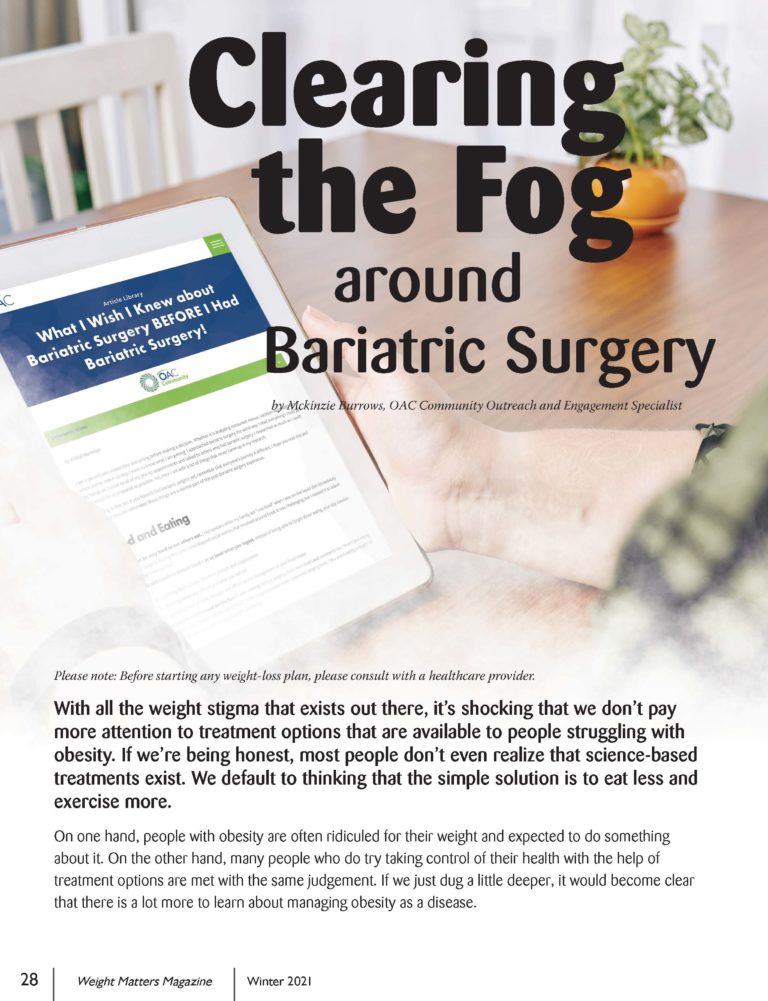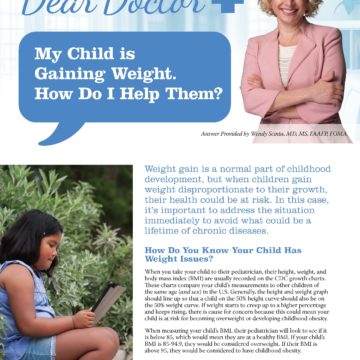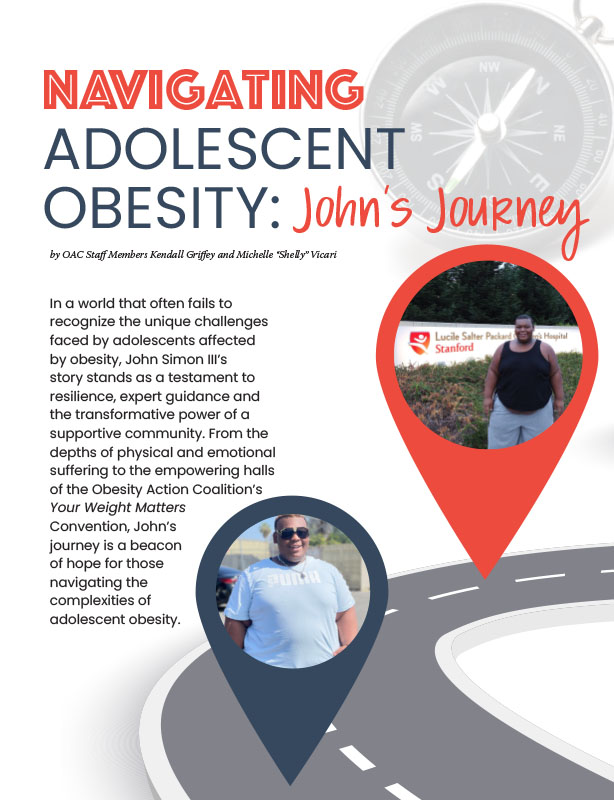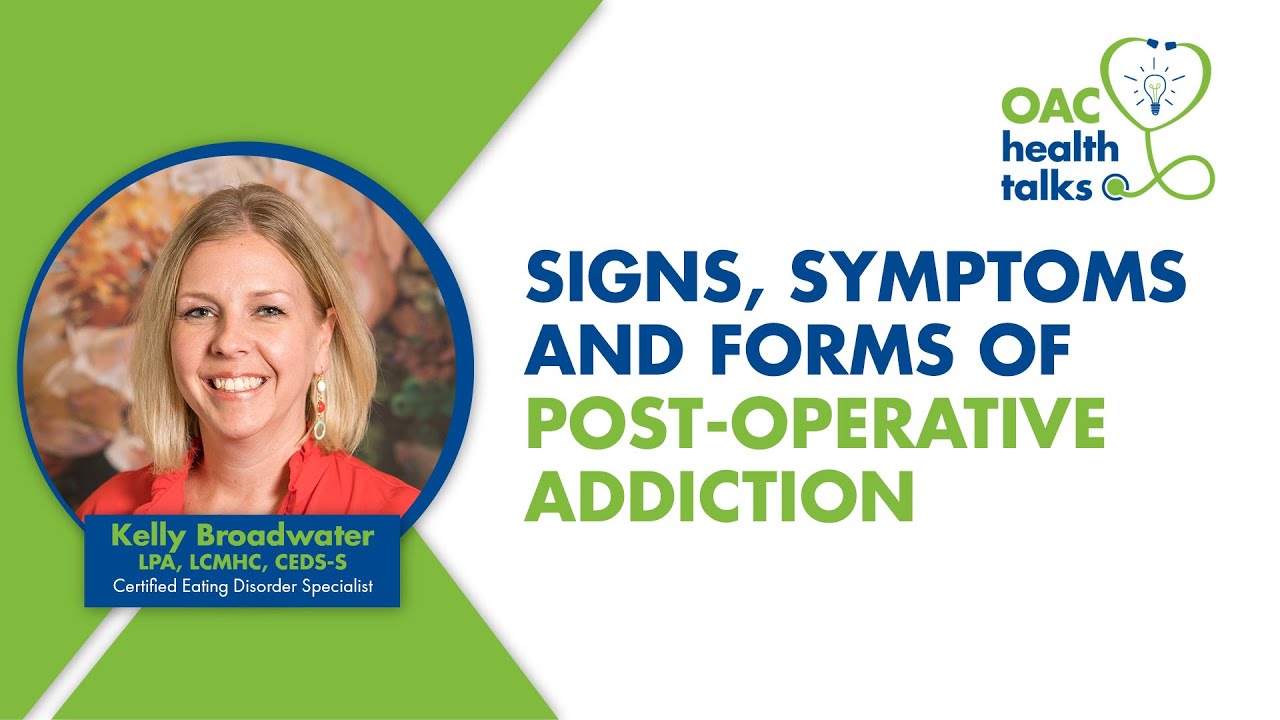Clearing the Fog around Bariatric Surgery


by Mckinzie Burrows, OAC Community Outreach and Engagement Specialist
Winter 2021
Please note: Before starting any weight-loss plan, please consult with a healthcare provider.
With all the weight stigma that exists out there, it’s shocking that we don’t pay more attention to treatment options that are available to people struggling with obesity. If we’re being honest, most people don’t even realize that science-based treatments exist. We default to thinking that the simple solution is to eat less and exercise more.
On one hand, people with obesity are often ridiculed for their weight and expected to do something about it. On the other hand, many people who do try taking control of their health with the help of treatment options are met with the same judgement. If we just dug a little deeper, it would become clear that there is a lot more to learn about managing obesity as a disease.
Looking at the Science
Thankfully, science has come a long way. In the last decade, it has proven how life-changing the right treatment can be to someone struggling with the disease of obesity. A closer look at the science will also show that bariatric surgery is proven to be one of the most effective treatments currently available. If combined with the right support system and tools, it can potentially transform a patient’s quality of health and life.
Benefits of Bariatric Surgery
As listed by the American Society for Metabolic and Bariatric Surgery (ASMBS):
- Bariatric surgery increases lifespan and helps improve or resolve more than 40 obesity-related conditions, including type 2 diabetes, high blood pressure, heart disease, sleep apnea and some cancers.
- Patients may lose as much as 60% of excess weight six months after surgery, and 77% of excess weight as early as 12 months after surgery.
- On average, five years after surgery, patients maintain 50% of their excess weight-loss.
The Easy Way Out? Hardly!
Unfortunately, even with all the science to back it up, many people still don’t consider bariatric surgery to be a valid option for the treatment of severe obesity. Not because it doesn’t work, but because of stigma. Bariatric surgery is often thought to be a “quick fix.” Patients who choose surgery are often believed to be taking the “easy way out.” However, these beliefs come from the outdated idea that weight-loss is always as simple as eating less and moving more.
This couldn’t be more untrue! As nearly every bariatric surgery patient will tell you, the decision to have surgery can be a tough one. The journey with weight doesn’t stop after the operation. Surgical patients still have to practice healthy lifestyle habits, create new routines and address any challenges they might have with food, exercise, mental health and other weight-related factors.
Not Without Risks
In addition to the hard work required after bariatric surgery, patients must also consider potential risks. Just like any surgery or medical procedure, bariatric surgery can come with complications. Depending on the type of procedure chosen, potential problems could include:
- Separating stitches
- Insufficient weight-loss
- Weight regain
- Infection
- Vitamin or calorie deficiency
- Anatomical complications
This is why it is important for patients to work closely with their healthcare team, even long after their surgery. They must also stay up-to-date with regular labs and health exams.
Hearing the Voices of Patients
All of this goes to show that one size does not fit all for treating obesity. There are many science-based treatment options out there, but bariatric surgery is one of the most misunderstood. There is a lot of fog to be cleared and many questions that both potential patients and the general public still have:
- What exactly is bariatric surgery?
- What are the benefits and risks?
- How well does it really work?
- What comes after?
Despite all of the questions and confusion, patient voices are a good place to start if you’re interested in learning more about bariatric surgery. More than 40% of surveyed Obesity Action Coalition (OAC) members have had bariatric surgery, and these are some of their reflections we gathered in order to increase understanding and awareness of this treatment option.
“I had vertical sleeve gastric surgery in July 2018. In September 2019, I had revision bypass surgery due to health issues. I wish I knew before surgery that the surgery was the easy part. One can’t fully understand the magnitude of the work that comes after. There is a huge psychological connection to food and lots of new behaviors that need to be learned. Yes, we are told that surgery is a tool – but until you’ve been through it, you won’t know how much your new lifestyle will change your day to day life.”
Anita Saah
Rockville, MA
“Knowing what I know now, I would have had my surgery a lot earlier than I did, given all the support I’ve learned is out there. What helped me? Going to support groups with my wife and spending time talking to surgeons, dietitians and other patients.”
Reo Davis
San Antonio, TX
“I wish someone had told me that bariatric surgery is definitely NOT taking the easy way out. But it doesn’t mean life has to be HARD either. You can have a long, happy, fulfilling life if you develop sustainable habits. And if you do that, the time and effort you put in now will be well worth it for years to come.”
James Lacher
San Luis Obispo, CA
“Bariatric surgery is not a vaccine against weight gain. Having bariatric surgery doesn’t mean you’ll never gain weight again. Life still happens. Aging still happens. Bariatric surgery just means I’ll deal with these inevitable gains at a lower weight.”
Kesha Calicutt
Cedar Hill, TX
“I really wish I’d known that the combination of all my dietary awareness and physical fitness efforts that I had been trying all along could be so effective when combined with weight-loss surgery. If I had known, I would have done it sooner.”
Butch Rosser, MD, FACS
Davenport, FL
Conclusion
Our job isn’t to tell anyone how to manage their obesity, but rather to arm them with knowledge, support and resources to find their own path. We also have to do a better job at raising awareness of obesity as a chronic and complex disease. Bariatric surgery is one tool in the toolbox, and we have a duty to let others know it exists and how it can help. It isn’t a cure for severe obesity, and it won’t guarantee a lifetime free of weight struggles, but it can help ease some of the challenges.
If you’re interested in learning more about bariatric surgery as a treatment option for obesity, as well as other treatment options, the OAC website has an “Obesity Treatments” section with tons of resources and education. If you’re interested in hearing the perspectives of bariatric surgery patients, visit Forum.ObesityAction.org to look around at what others are saying.
About the Author:
Mckinzie Burrows is the Obesity Action Coalition’s (OAC) Community Outreach and Engagement Specialist and says the best part of her role is helping people get more involved with the organization. She is passionate about humanizing obesity by raising up the voices of people affected as well as sharing education to reduce weight bias and stigma.
by OAC Staff Members Kendall Griffey and Michelle “Shelly” Vicari Winter 2024 In a world that often…
Read Articleby Rachel Engelhart, RD; Kelly Donahue, PhD; and Renu Mansukhani, MD Summer 2023 Welcome to the first…
Read ArticlePost-operative addiction is often overly simplified as transfer addiction or cross-addiction, assuming individuals “trade” compulsive eating for…
View Video









